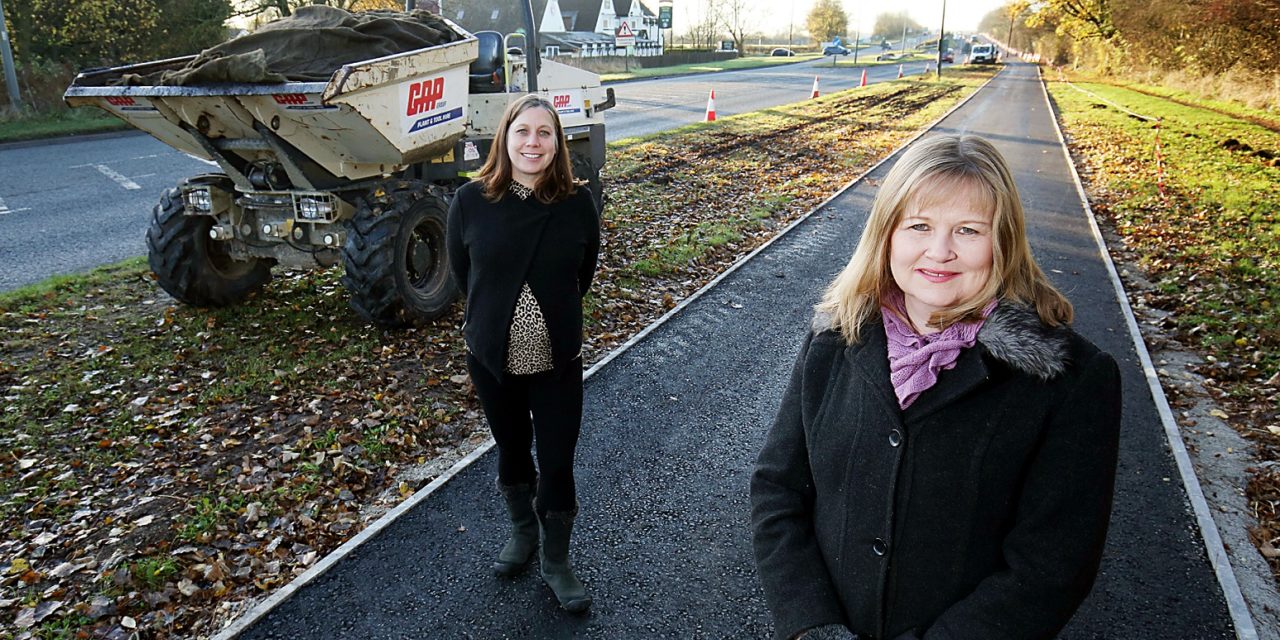Work has begun on a new travel route in Newton Aycliffe to provide better facilities for pedestrians, wheelchair and pushchair users and cyclists.
Durham County Council is building the new route alongside the A167, using money allocated from the government’s Active Travel Fund.
In May 2020, the government announced £2 billion of funding for walking and cycling, to help seize the once in a generation opportunity to change the way that people travel in response to the Covid pandemic.
The Active Travel Fund was divided into two tranches. Nationally, £250 million was allocated in Tranche 1 to be spent on swiftly delivered emergency measures to provide more space for walking and cycling. Durham County Council received a £392,999 allocation from this first portion of the fund, which it spent on improvements including protected cycle lanes, reduced speed limits, enhanced bridleways and resurfacing work.
In the second tranche of funding, the council was awarded £650,000 to create an active travel corridor in Newton Aycliffe.
The new two-kilometre route will link Moore Lane and Aycliffe Village, via St Cuthbert’s Way, and will include a wider footway for pedestrians, as well as a separate new two-way cycle lane.
On completion, the scheme will become part of the Great North Cycleway, a long-distance route linking Blyth to Darlington. The route, which is due to be complete by spring 2022, will also link up with other travel schemes in the future, to create a more comprehensive active travel network across the region.
In February 2021, residents, businesses and visitors were encouraged to have their say on plans for the scheme. Eighty-six per cent of people who responded to the consultation said that they either strongly agreed or agreed with the proposals.
Cllr Elizabeth Scott, the council’s Cabinet member for economy and partnerships, said: “During the restrictions of Covid, travelling on foot and by bike became popular options for a lot of people. We want to encourage all the people who have been walking, running and cycling during the lockdowns to continue to do so, as well as encouraging new people to take part.
“The new Newton Aycliffe travel corridor will help people to walk and cycle to work, school, to do their shopping or to take exercise, which will in turn improve their health. Choosing to cycle or walk instead of driving, will also reduce traffic congestion and pollution, as well as reducing people’s carbon footprint, so the scheme has many benefits.”
Further information about the Newton Aycliffe scheme, plus other travel improvements across the county, can be viewed at www.durham.gov.uk/activetravel
New Cycle and Walking Route Funded










